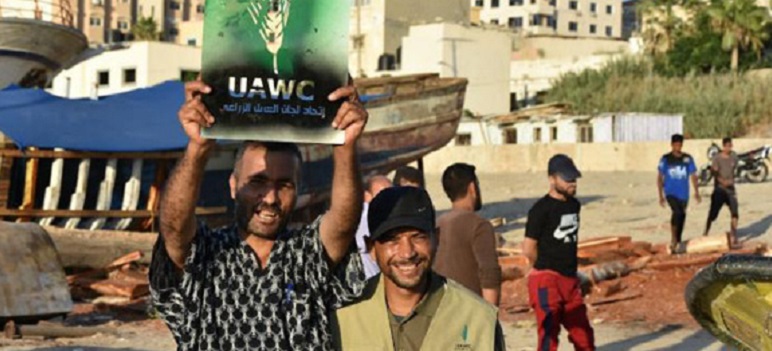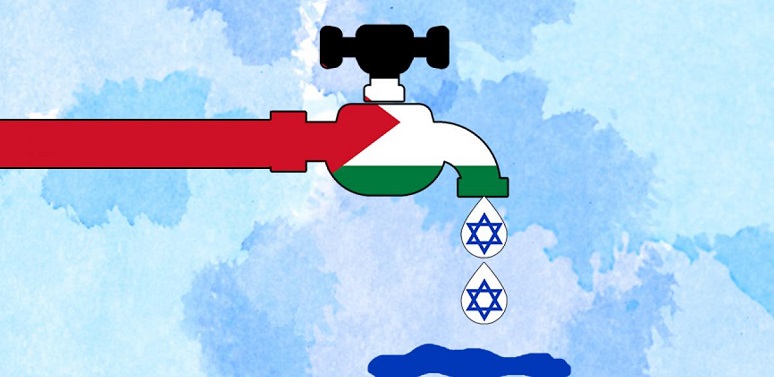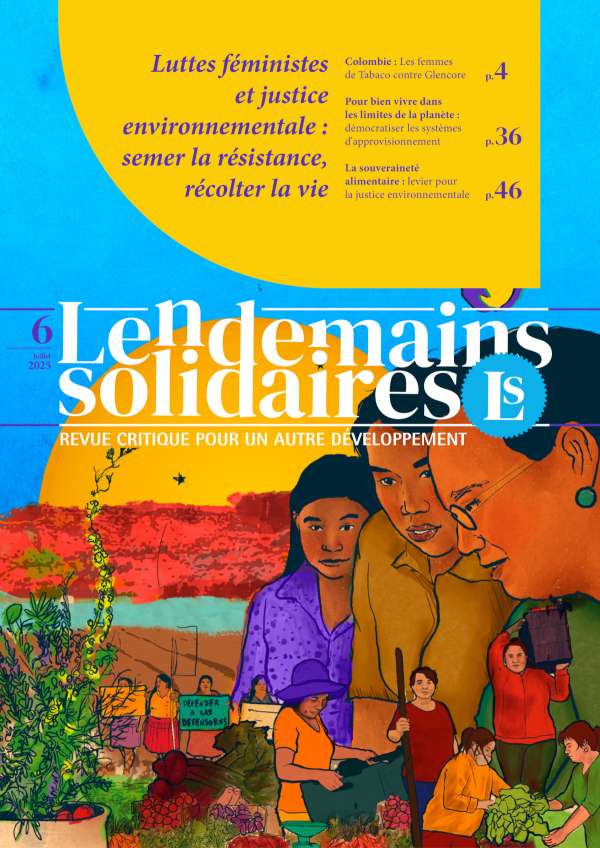At the global level, there are currently some 1.2 billion peasants and together with their families they represent one third of humanity. In absolute terms, there are more peasants today than ever before in history.
Peasants and other rural workers are key to food sovereignty and the realization of the right to food, in particular in developing countries where they provide up to 80% of the food consumed at the local level.
Peasants play a key role in the fight against climate change and the conservation of biodiversity
Yet peasants and other people working in rural areas are among the most vulnerable and discriminated-against group. They are victims of multiple violations of their human rights and suffer disproportionately from hunger and poverty. 80% of those victims of hunger in the world live and work in rural areas.
The CETIM works for several years in favor of the rights of peasants. lt provides its support to organizations representing peasants and other rural workers in the Global South for the access to the UN human rights protection mechanisms. The CETIM is also strongly involved to their sides in the campaign for the adoption of a United Nations Declaration on the rights of peasants and oher people working in rural areas, offering its support so that they are able to participate in the negotiations and present their proposals.
A Declaration on the Rights of Peasants
On 17 December 2018, the United Nations adopted the Declaration on the Rights of Peasants and Others Working in Rural Areas. Alongside La Via Campesina, CETIM was strongly involved in the process that led to the adoption of this indispensable tool. In particular, it offered its support to peasants to enable them to participate in the negotiations and to make their proposals heard.
The adoption of the Declaration is a historic moment. It is the result of a 17-year struggle for the recognition of the rights of this particularly vulnerable population. If respected and implemented, this instrument will be useful, not only for peasants, but for humanity as a whole.
One year after the adoption of this indispensable tool, a joint declaration was signed by nine special rapporteurs and experts and four members of the UN treaty bodies. This document stresses that farmers must participate “in all decision-making processes that affect their lives, lands, resources and livelihoods” and repeatedly urges states to play a key role in implementing the Declaration.
In October 2023, the United Nations Human Rights Council, with an overwhelming majority of Member States in favour, took another historic step. It voted in favour of Resolution 54/9 to create a follow-up mechanism to the Declaration. A Working Group of experts is now responsible for promoting and implementing the Declaration.
Download for free the e-book edited by CETIM “The UN Declaration on the Rights of Peasants“
Protect Peasants’ Rights Campaign
Access to justice for peasants
Training sheets on peasants’ rights
HUMAN RIGHTS COUNCIL 49th session 28 February – 1 April 2022 The right to water of the Syrian population, and in particular of the peasant communities who depend on it for agriculture, is systematically violated in the framework of the military occupation of the territory by Turkey and pro-Turkish militias. Read the CETIM’s written statement
Continue reading
PRESS RELEASE Geneva, March 29, 2022 – The International Commission of Inquiry on Syria presented its annual report at the 49th regular session of the HRC. The report highlighted the catastrophic humanitarian and human rights record of the conflict over the past 11 years, while omitting the role played by foreign military occupation forces in […]
Continue reading
The last CETIM bulletin of the year 2021 has just been published. Read it here in full. It deals among other things with the criminalisation of informal trade in Chile. As well as the binding treaty on transnational corporations that CETIM and its partners are defending at the UN.
Continue reading
PRESS RELEASE We, the undersigned, stand in firm internationalist solidarity with Palestinian Civil Society and demand the Israeli Ministry of Defense and Israel Defense Forces (IDF) reverse their recent decrees against six of the most important rights-based organisations in occupied Palestine. On October 19th, 2021, the Israeli Defense Minister, Benny Gantz, issued a military order […]
Continue reading
HUMAN RIGHTS COUNCIL 48th session 13 September – 8 October 2021 During the 48th session of the Human Rights Council, CETIM, in collaboration with the International Association of Demcoratic Lawyers (IADL) and the Union of Agriculture Work Committee (UAWC-Palestine), intervened during the debate on the Report of the High Commissioner on allocation of water resources […]
Continue reading
« Previous
1
…
18
19
20
21
22
…
43
Next »






